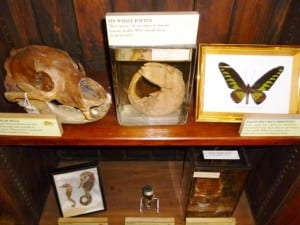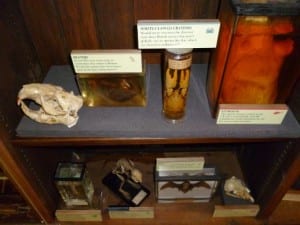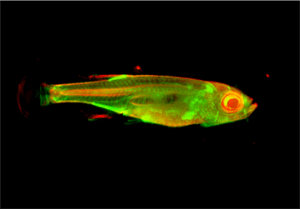Could 1950s marine biologists speak underwater?
By Jack Ashby, on 25 January 2012
 Last week we kicked off the Grant Museum’s Humnanimals Season with one of our ever-popular film nights – Under the Caribbean (1954). Humanimals Season is all about the interactions between the lives of animals and humans, investigating human concepts in the animal world, and animals venturing into the human world. Dr Joe Cain, the stalwart presenter of GMZ film nights (and Head of UCL Science and Technology) had been insisting that we showed this 1950s underwater documentary for years.
Last week we kicked off the Grant Museum’s Humnanimals Season with one of our ever-popular film nights – Under the Caribbean (1954). Humanimals Season is all about the interactions between the lives of animals and humans, investigating human concepts in the animal world, and animals venturing into the human world. Dr Joe Cain, the stalwart presenter of GMZ film nights (and Head of UCL Science and Technology) had been insisting that we showed this 1950s underwater documentary for years.
I must admit, I hadn’t watched it, but my gut reaction was that our audience relies on us to show classic films, with a link to natural history that they will enjoy watching – many people enjoy the camp, slightly ridiculous productions like Tarzan and The Blob. “An out-dated documentary is surely a bit dry?”, I would say to Joe. He would tell me that it was ground-breaking for the genre and had heaps of never-before seen footage. “Hmmm”, I would say, “it’s just doesn’t sound silly enough”.
Boy, was I wrong. (more…)
 Close
Close






 Should species like red squirrels be protected in England when they are common in Europe?
Should species like red squirrels be protected in England when they are common in Europe?
